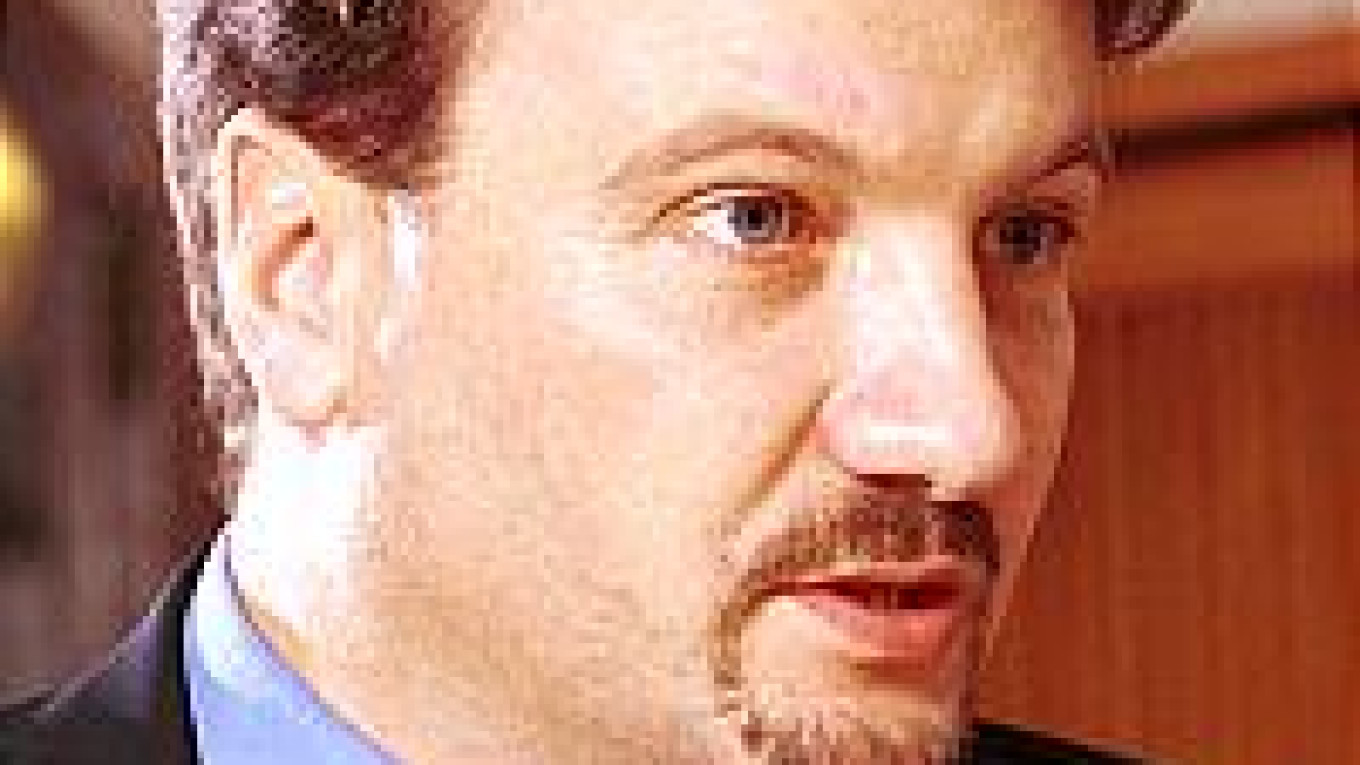Gref said in an interview that in discussions with U.S. officials earlier Tuesday, there was a "long list of questions about policy toward Russia but very few answers."
"It's easier to talk about policies they are clear on than the ones that they aren't," Gref said. He said U.S. officials had unequivocally backed Russia's entry into the World Trade Organization and also expressed understanding of its decision to pull out of signing a one-year standby agreement with the International Monetary Fund.
"They understand that there is no sense in this kind of agreement when we don't need the funds," Gref said.
On Tuesday, Gref met with John Taylor, the nominee for the U.S. Treasury's top international post, Energy Secretary Spencer Abraham and Commerce Secretary Don Evans among others. On Wednesday, he was to meet with World Bank President James Wolfensohn.
Asked when Russia was likely to discuss further with the IMF the possibility of a three-year program, Gref said, "It depends on when we might need additional resources and restructuring with the Paris Club [of creditor nations]."
"If we follow the program that has been stipulated by the [Russian] government and the Central Bank, then the U.S. will have a favorable response to it," Gref said.
"We don't need financial assistance from the U.S., but we should be able to coordinate our policies," he added.
Last month, the Russian government approved in principle a long-term economic strategy aimed at ensuring stable growth and creating an attractive investment climate.
?€” German Gref
Gref said the restructuring of Russia's debt to the Paris Club has only been discussed "in passing" with U.S. officials. Earlier this year, Russia was hoping to restructure further billions of dollars of outstanding debt to the Paris Club, but several creditors, including Germany, felt that Russia had enough money to continue making its debt payments for the next few years. These creditors cited as evidence the high price of oil, which has swelled Russia's foreign exchange reserves.
"I confirmed our determination to fully pay back our debts; but in 2003 we will have difficulties with regard to the peak of the debt payments, and it is highly possible that we will need restructuring at this point," Gref said.
He said that U.S. officials had reacted with "understanding" to the possible need for restructuring in 2003, but Gref said it is too early to say what the actual U.S. response to this would be.
Asked about his recent announcement to liberalize foreign exchange controls, Gref said: "Right now, we are drafting a package of measures that would lead to liberalization of currency regulations. This would lead to a reduction of obligatory currency sales, but this is all currently being debated between the government and the Central Bank."
Gref said he hoped that a proposed package of changes to the banking sector would be presented to the State Duma, the lower house of parliament, this year, but not before the spring session. He said this package would also include proposals for changes to the state-run Sberbank.
"We are discussing the guarantees that Sberbank enjoys today. We are talking about the possibility of lifting the guarantees and spreading them out between all the banks for a limited amount of money so that all banks will be equal."
Gref was speaking on the sidelines of a dinner hosted by the U.S.-Russia Business Council. He told the audience that the slight slowdown in economic growth that Russia is currently experiencing had been anticipated by the government and was accounted for in this year's budget.
In his annual state of the nation address, President Vladimir Putin said he was worried by signs of a slowdown after the highest growth levels in almost 30 years. Gross domestic product grew 7.7 percent in 2000, but is expected to slow to 4 percent this year.
Russia's industrial output has slowed and its inflation has remained high, eroding the competitiveness of Russian producers by leading to a real appreciation of the ruble.
Gref said the slowing was likely to persist for several more years until investment picks up. But he added that he was confident that all the economic forecasts laid out in the budget for this year would be met. However, "[Inflation] might exceed the targets by a couple of percentage points."
On the topic of energy, Gref said he recently visited China, where he has held talks on a potential gas pipeline between Irkutsk in Siberia and China.
"We did discuss this with China and it's still under discussion, but I'm not prepared to talk about the exact dates of the project's implementation," he said.
A Message from The Moscow Times:
Dear readers,
We are facing unprecedented challenges. Russia's Prosecutor General's Office has designated The Moscow Times as an "undesirable" organization, criminalizing our work and putting our staff at risk of prosecution. This follows our earlier unjust labeling as a "foreign agent."
These actions are direct attempts to silence independent journalism in Russia. The authorities claim our work "discredits the decisions of the Russian leadership." We see things differently: we strive to provide accurate, unbiased reporting on Russia.
We, the journalists of The Moscow Times, refuse to be silenced. But to continue our work, we need your help.
Your support, no matter how small, makes a world of difference. If you can, please support us monthly starting from just $2. It's quick to set up, and every contribution makes a significant impact.
By supporting The Moscow Times, you're defending open, independent journalism in the face of repression. Thank you for standing with us.
Remind me later.


